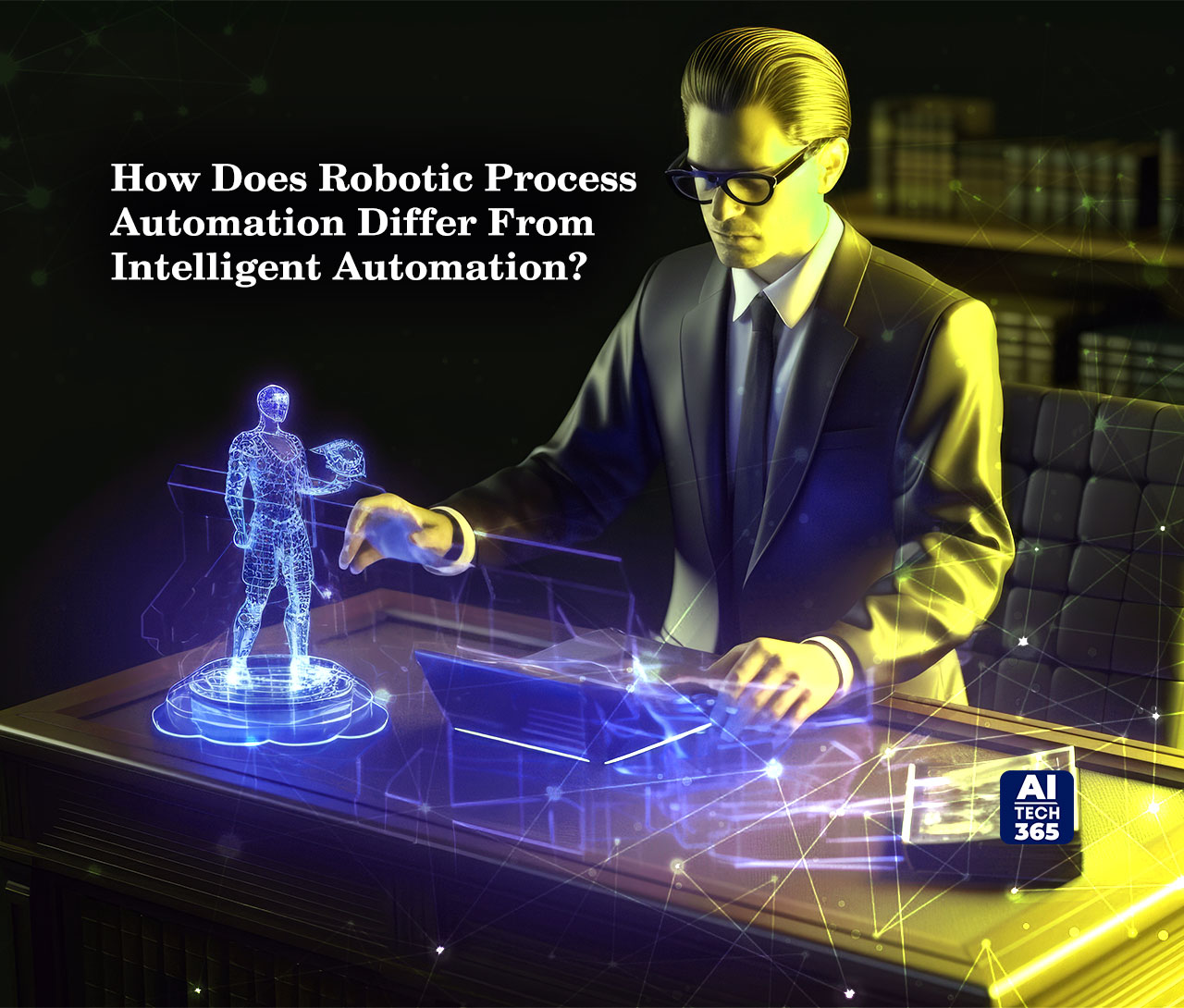Do you ever feel like your business is drowning in repetitive tasks? Manual data entry, invoice processing, and scheduling meetings – these essential functions can quickly bog down your team and hinder productivity. But what if there was a way to automate these processes, freeing up your employees to focus on more strategic initiatives?
This is where Intelligent Process Automation (IPA), a revolutionary approach that combines the power of Robotic Process Automation (RPA) with Artificial Intelligence (AI) to streamline your operations. This definitive guide will take you on a deep dive into IPA, exploring its potential to transform your business.
What is Intelligent Process Automation?
Intelligent Process Automation (IPA) is the combination of various technologies, such as Robotic Process Automation (RPA), artificial intelligence (AI), machine learning (ML), and process mining, to automate and optimize business processes.
It goes beyond basic task automation and focuses on automating end-to-end processes, including decision-based tasks that traditionally require human intervention. By leveraging AI and other intelligent technologies, IPA enables businesses to streamline operations, reduce costs, improve efficiency, and enhance customer experiences.
How Does Robotic Process Automation Differ From Intelligent Automation?
The difference between IPA and RPA lies in their capabilities and scope. RPA focuses on automating repetitive tasks by using software robots that emulate human actions.
It is typically used for high-volume, rule-based activities that were previously performed by humans. On the other hand, IA is a broader term that encompasses various Artificial Intelligence (AI) technologies, including machine learning, natural language processing, and intelligent document processing.
What are Examples of Intelligent Automation?
Some examples of intelligent automation include using robotic process automation (RPA) to electronically extract information from documents and automating consumer communications (e.g., automated welcome emails). Additionally, by eliminating expensive mistakes from manual data input procedures, organizations can increase compliance.
What technologies are Utilized by Intelligent Process Automation (IPA)?
IPA integrates robotic process automation (RPA) software with advanced intelligence technologies including:
- Process mining: This analytical method diagnoses business processes, leveraging data analysis to capture and enhance process efficiency.
- Natural language processing (NLP): This software empowers hardware to comprehend, interpret, and manipulate language—whether spoken or written.
- Computer vision: Utilizing tools like OCR (optical character recognition), this technology scans documents and converts them into text.
- Machine learning: By employing AI software algorithms, this process identifies patterns in structured, historical data, enabling precise predictions on future outcomes.
- Artificial intelligence: This technology aims to replicate and even surpass human intelligence, processing data at speeds beyond human capability and learning from past decisions.
What are the Benefits of Using Intelligent Process Automation?
Here are some key benefits:
- Efficiency and Productivity: IPA automates routine and repetitive tasks, allowing employees to save time and focus on more strategic and value-added activities. By reducing manual effort, organizations can achieve higher productivity levels.
- Process Optimization: IPA leverages technologies like machine learning and AI to analyze data and identify opportunities for process improvement. It can discover new ways to optimize processes, leading to increased efficiency and productivity gains.
- Cost Reduction: By automating tasks and processes, organizations can reduce operational costs associated with manual labor, errors, and inefficiencies. IPA can lead to significant cost savings over time.
- Improved Customer Experience: IPA can enhance customer experiences by automating and streamlining customer-facing processes. It enables faster response times, reduces errors, and provides more personalized interactions, leading to higher customer satisfaction.
- Flexibility and Scalability: IPA offers flexibility and scalability, allowing organizations to adapt to changing business needs and handle increased workloads. It can easily scale up or down based on demand, providing agility in operations.
How can Intelligent Process Automation (IPA) benefit your business?
Let’s explore some real-world use cases:
Data Collection
Imagine your customer service team no longer needs to manually gather customer data from various platforms. With IPA, an automated tool can handle this task efficiently. By extracting data from databases and updating records with information from emails and phone calls, IPA streamlines the process, saving time and reducing errors.
Insurance
In the insurance industry, claims departments often spend significant time manually inputting data from claims forms into CRMs. IPA software can simplify this process by extracting essential data from forms and automatically inputting it into the CRM system.
Case Study: Royal Exchange General Insurance Company (REGIC)
Facing paper-based processes and approval delays, REGIC sought a solution to streamline operations. Chibuzor Onu, a Business and Process Analyst, implemented Kissflow to automate operations and improve efficiency.
Results:
- Reduced process cycle time from 2-3 days to 10 minutes.
- Automated 1-3 manual processes weekly.
- Processed 545 claim requests in 3 months.
Impressed by Kissflow‘s user-friendly interface, Chibuzor plans to expand automation across REGIC’s operations, including HR, Investment, and IT.
Final Words
Intelligent process automation is revolutionizing the way organizations operate by combining the power of robotics, artificial intelligence, and data analytics. With IPA, businesses can automate repetitive tasks, optimize processes, and make data-driven decisions.


